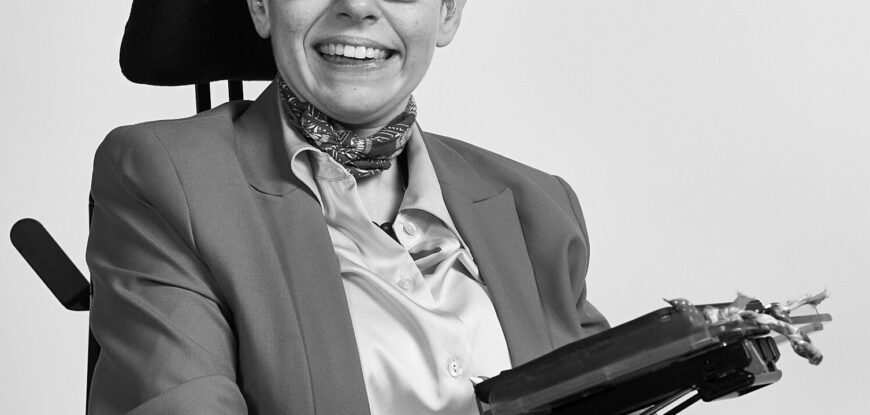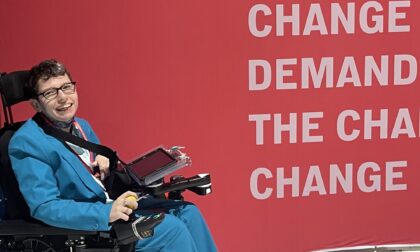We hear and read daily about how the government wants disabled people to work. This week we know they are not valuing nearly a quarter of the population. The move to replace the Minister of State for disabled people with a junior minister makes this clear.
Long-term strategy?
Downgrading the ministerial role shows disabled people are not a government priority. But in fact, this stance is not something new. Over the last decade, we have seen a worrying trend with disabled people experiencing more discrimination and prejudice. The Government refused to attend the UNCRPD committee session in August 2023 to update the UN Committee on the 2016 recommendations around austerity policy decisions. These were seen as disproportionately affecting disabled people showing a blatant disregard for equal rights. The National Disability Strategy 2021 was declared unlawful for lack of consultation with disabled people. In response, the Government put on hold 14 policies for 18 months creating uncertainty and frustration. The Covid Inquiry news of disproportionally higher numbers of deaths of disabled people during the pandemic is heart-breaking.
Disabled people want to work
Many disabled people would love to work. There is broad agreement that for this to happen there needs to be an attitude shift or even a cultural tsunami. The reward for voluntary and paid work for many people is more than just something to fill the time. Work can reduce social isolation and promote connectedness, both are so important for overall well-being. When we are actively engaged we add to the viability of the economy, either by paying tax or adding value elsewhere. On this note, voluntary work should be just that. There should be a choice, not an expectation, that disabled people be expected to share their lived expertise for free.
Healthcare is essential
To undertake work we need appropriate healthcare. The right support is a key factor to get disabled people into employment, back to work, or to stay in work. We may need healthcare support for
- Mobility (wheelchair services).
- Seating and fatigue (occupational therapy).
- Orthotics (prostheses, postural orthotics, braces and splints).
- Pain management (orthopaedics, physiotherapy and occupational therapy).
- Mental health (Neuropsychology and counselling).
- Communication (AAC specialist services, speech and language therapy).
- Assistive technology (AT specialist services).
- Other condition-related issues (Condition-specific health professionals, Ophthalmology, Audiology, Neurology and more).
Not all disabled people can work
I’m intrigued by the suggestions that everyone can work. Many disabled people would like to work but are hindered for a whole number of reasons:
In my humble opinion, not everyone can work. If they could then there wouldn’t be the Employment and Support Allowance support group. Nor would there be enhanced disability premium and severe disability premium. The government rhetoric means some people are worried they may lose benefits when they are unable to work.
I do think the disability definition does a disservice to all disabled people by classifying us all under one broad umbrella. Many people have overlapping conditions, for instance, chronic pain, mental health and mobility issues, which leads to an inability for direct comparison between not just disabled groups, but also individuals. Just like the rest of the population, we are all unique and what solutions will work for some may not work for others. The solutions for one with a visual impairment, autism, or a mental health condition may not work for me. In my case I need support for my complex physical disability, hearing and speech impairment.
Appropriate roles needed
Next, there is a need for appropriate roles suited to what individual disabled people can do. This needs out-of-the-box flexible thinking. The suggestion all disabled people can work from home must be realistic. When I looked the only work-from-home jobs, were either home-based but travelling each day to see customers, or doing jobs unsuitable for many. With the best will in the world, many people like me will simply struggle. I use AAC to speak and don’t have good hand function. This means I cannot data input, or speak on the phone unless I sit there and direct my assistant to do it for me.
Workplace support is essential
Third, suitable workplace support has to be available. This includes personal assistants (PA) who are valued and trained to support individual disabled people so they can fulfil their potential. This might sound easy but finding suitable staff to fill these roles is nigh on impossible these days. Working with me is a skilled and sometimes intense role. My assistants are my hands, then learning my communication support needs is crucial. One minute my PA is helping me with care or cooking me a meal. The next they are driving me to appointments, making my notes in a meeting, or troubleshooting my tech.
Realistic expectations
Even with flexible roles output can be considered by some an issue. For many disabled people there are dexterity, fatigue and pain issues to consider, plus the extra time it takes to do ‘normal’ things. My disability means I can never just jump in the car and go, every outing is a planned military operation that takes much longer than for other people. Then there is the extra time needed at the venue, the additional time for eating, drinking and care. Doing desk work I’m using my brain and directing my assistant to move the mouse on the computer, collate my printing, turn the pages of hard copy material I’m reading, and scribe my notes and comments. Everything takes time.
What is holding us back?
The recent Disability Action Plan 2023-2024 consultation feels like a complete waste of time. With the closing date in October 2023, there appears to have been nothing forthcoming from the government. Now with a lesser minister appointed who is openly stating her focus is on social mobility, it feels there is even less hope things will be resolved swiftly. The Women and Equalities Committee report on the National Disability Strategy issued last week (6 December 2023) highlights the Government’s continued lack of action and support for all disabled people.
What we can do
I may be preaching to the converted, but if you are reading this please share. We now need to:
- Hold to account current government, and the other main parties, in the run-up to the next election. We need to know what their concrete plans are for disabled people in their manifestos. With over 20% of the voting population experiencing a disability just consider what happens if we were to come together.
- Raise awareness outside the disability community of just what is happening, and what this means. When disabled people speak out, and elected officials get behind disability discrimination issues, changes happen. In 2023 we saw Labour overthrow the local council in York when residents became aware of discriminatory practices regarding parking that were affecting disabled people.
If there was ever a time for disabled people to come together it is now. We need to be asking ourselves ‘If not now, when? If not me, who?’ Write to your MP, and write to your prospective candidates for your constituency. Share the realities of the current situation with anyone who will listen from your family and friends to your neighbours and your colleagues. Disabled people do not deserve to be in this position.
Photo credit: The Shaw Trust Disability Power 100 2023.





If you found this interesting or
helpful please feel free to share.